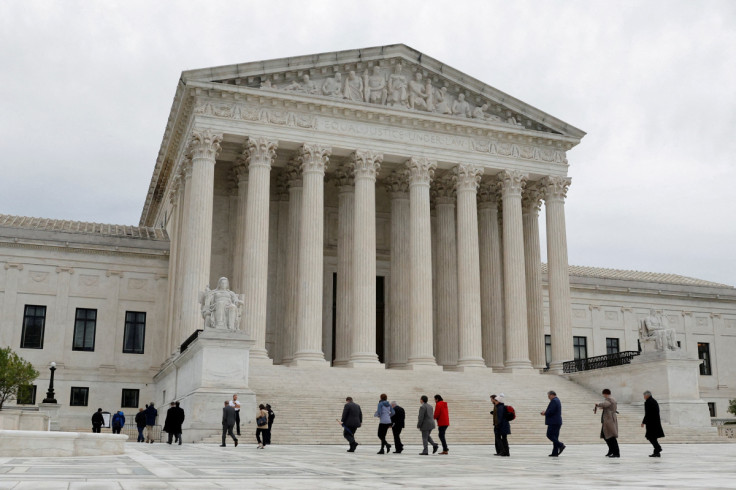US Supreme Court Examines Law Against Encouraging Illegal Immigration

The U.S. Supreme Court on Monday will consider whether a federal law that made it a crime for a person to encourage illegal immigration violates constitutional free speech protections in a case involving a California man who deceived immigrants through a phony "adult adoption" program.
The justices are due to hear arguments in an appeal by President Joe Biden's administration of a lower court's decision to strike down the decades-old provision, part of a larger immigration statute, as overly broad because it may criminalize legitimate speech protected by the U.S. Constitution's First Amendment.
In invalidating the law, the San Francisco-based 9th U.S. Circuit Court of Appeals threw out the 2017 conviction of Helaman Hansen for violating the provision, which bars inducing or encouraging noncitizens "to come to, enter or reside" in the United States illegally, including for financial gain.
Hansen also was convicted of mail and wire fraud and sentenced to 20 years in prison. He is out of prison while his appeal is pending.
Federal prosecutors accused Hansen of deceiving immigrants in the United States illegally by promising them between 2012 and 2016 that they could gain American citizenship through an "adult adoption" program operated by his Sacramento-based business, Americans Helping America Chamber of Commerce.
The prosecution said Hansen persuaded at least 471 people to join his program, charging each of them up to $10,000 even though he "knew that the adult adoptions that he touted would not lead to U.S. citizenship." Hansen and his program collected more than $1.8 million through the scheme, authorities said.
In its February 2022 ruling striking down the law, the 9th Circuit ruled that it criminalizes even commonplace speech such as telling immigrants who are in the country illegally, "I encourage you to reside in the United States," or advising them about available social services. The 9th Circuit upheld Hansen's other convictions and ordered that he be resentenced.
The 9th Circuit decision applies in the group of western states over which it has jurisdiction including Arizona and California, which border Mexico.
The Denver-based 10th U.S. Circuit Court of Appeals also ruled against the law in a separate case.
The Justice Department told the justices that the 9th Circuit decision wrongly relied on "hypothetical scenarios that the statute would not encompass." The law only targets facilitating or soliciting criminal acts, not "abstract advocacy," it said.
Biden's administration urged the justices to restore an "important tool for combating activities that exacerbate unlawful immigration," particularly because of the high volume of immigration-related litigation and criminal prosecutions that occur in the states covered by the 9th Circuit.
Various free speech, libertarian and press advocacy groups filed briefs backing Hansen, urging the justices not to trust government promises of limited prosecutions. These groups argued that the law threatens attorneys, doctors, scholars and anyone else who speaks in support of immigration. One press freedom group said the law already has been used to justify the surveillance of journalists covering the U.S.-Mexico border.
The case is similar to one that the Supreme Court heard, but did not resolve, in 2020. A ruling is due by the end of June.
© Copyright Thomson Reuters {{Year}}. All rights reserved.




















